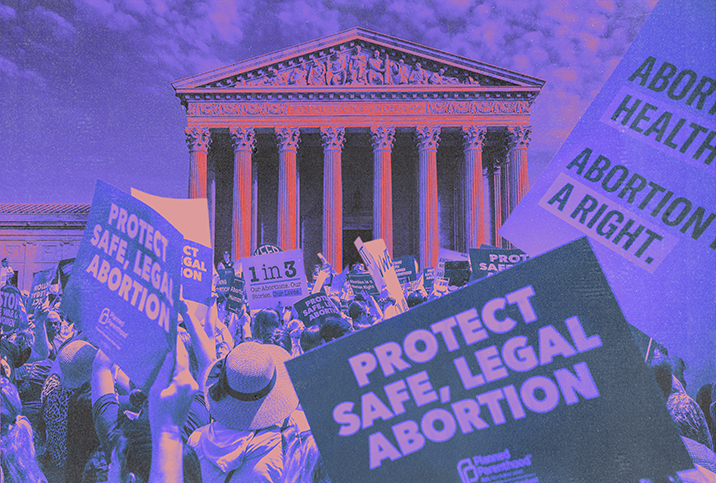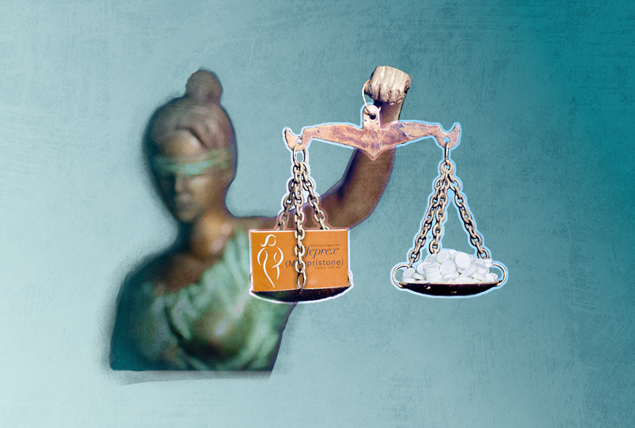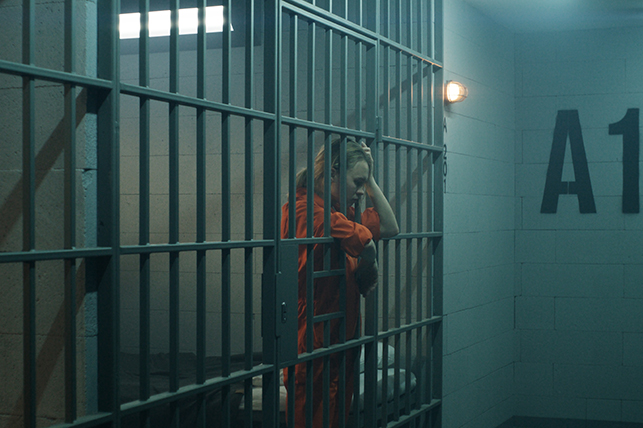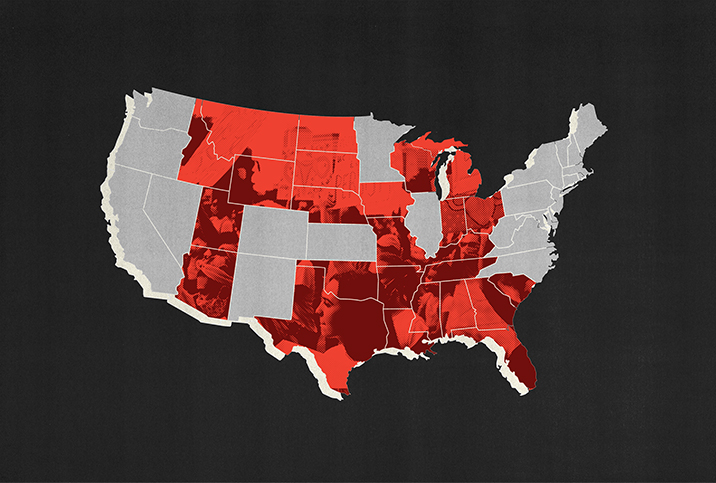Supreme Court Hears Case on Idaho Abortion Ban

Key Points
- Idaho's severe abortion ban prohibits doctors from providing abortions unless it's necessary to save a pregnant woman's life.
- The Biden administration sued the state, arguing the ban conflicts with the federal Emergency Medical Treatment and Labor Act (EMTALA) which requires healthcare providers to stabilize patients in medical emergencies.
- The case is before the Supreme Court, which will make its decision this summer.
The U.S. Supreme Court argued Wednesday, April 24, whether a federal law requiring hospitals to provide stabilizing care to patients in emergencies encompasses medical abortion.
The case pits Idaho's near-total abortion ban against the Emergency Medical Treatment and Labor Act (EMTALA), enacted in 1986. The court's decision, expected this summer, could have nationwide ramifications for women's healthcare.
What's EMTALA?
EMTALA requires Medicare-funded hospitals to treat patients with emergency medical conditions, regardless of their ability to pay, the Centers for Medicare and Medicaid Services said. It also requires hospitals to "stabilize" patients or transfer them to a facility that can.
Healthcare providers must act to ensure "within reasonable medical probability" that the patient's condition won't deteriorate and include treatment to prevent serious illness or damage to bodily functions.
Hospitals that violate the law may face lawsuits, civil fines and the loss of Medicare funding.
The Biden administration issued guidance on EMTALA in a July 2022 executive order, shortly after the U.S. Supreme Court overturned Roe v. Wade and the constitutional right to abortion. Hospitals must provide emergency termination of pregnancy if necessary to save a pregnant woman's life, the order shared.
If a state law prohibits abortion and doesn't include exemptions for saving pregnant women's lives—or draws the exemption more narrowly than EMTALA's emergency medical condition definition—the Emergency Medical Treatment and Labor Act preempts that law, according to the guidance.
Emergency conditions include ectopic pregnancy, complications of pregnancy loss and emergency hypertensive disorders, such as severe preeclampsia, according to the agency.
What is Idaho's abortion ban?
Idaho's near-total abortion ban called the Defense of Life Act or Section 622, prohibits nearly all abortions, with exceptions for reported cases of rape or incest or when necessary to prevent a pregnant woman's death.
Under the law, which is similar to those in more than a dozen other states, providing abortions outside the accepted circumstances is a felony offense punishable by two to five years in prison, plus the loss of a medical license.
Any family members related to the person who had the abortion can also bring civil suits against providers.
In August 2022, the same month the law was set to take effect, the Biden administration sued Idaho, asserting that the Defense of Life Act violated EMTALA. Shortly after, the District Court ruled that healthcare providers couldn't comply with the state and federal laws and granted a preliminary injunction to prevent the Defense of Life Act from taking effect.
Idaho requested a stay on the injunction, which the Ninth Circuit Court of Appeals denied on Nov. 13, 2023. In response to the state's petition, the U.S. Supreme Court in Jan. 2024 granted a stay on the preliminary injunction and agreed to hear the case, called Moyle v. United States.
Recommended
- The Facts About Abortion: Women considering abortion should understand the principal facts about the procedure itself.
- You Have Options if You Decide to Have an Abortion: There are many choices and factors to consider after you decide to terminate a pregnancy.
- Suffering in Silence: Abortion's Emotional Aftermath for Men: Men can hurt after an abortion, too—sometimes with serious psychological ramifications.
What are the arguments in the Idaho abortion ban?
Idaho Deputy Attorney General Josh Turner, who is representing the state, argued that EMTALA doesn't explicitly include abortion as part of "stabilizing care" and cannot supersede state law.
The state and its supporters have also accused the Biden administration of using EMTALA as a "Trojan horse" to require nationwide abortion access, according to the 2024 brief.
Turner told the justices Wednesday that EMTALA only requires doctors to offer available treatments, which don't include illegal procedures, in the March 24, 2024 argument. He also argued that EMTALA was only enacted to prevent hospitals from refusing to treat patients because of their condition or socioeconomic status.
"EMTALA leaves the question of specific treatments for stabilizing care to state law," Idaho representatives wrote in a brief. "Indeed, EMTALA treats medical emergencies faced by the unborn child of a pregnant woman no differently than emergencies faced by the mother."
The Biden administration, represented by U.S. Solicitor General Elizabeth Prelogar, argued that Congress used EMTALA to establish a national standard of care, which is widely recognized by the HHS [Department of Health and Human Services], Congress and medical professionals to include abortions when necessary to save a pregnant woman's life or prevent potentially life-altering harm to their health.
Situations in which emergency termination of pregnancy is needed to save a pregnant woman from severe harm are rare, Prelogar wrote in the filing. But when these circumstances arise, the Emergency Medical Treatment and Labor Act supersedes state law.
"Idaho's ban on abortion is enforceable in virtually all of its applications, but in the narrow circumstances involving grave medical emergencies, Idaho cannot criminalize the essential care that EMTALA requires," Prelogar wrote.
"Delaying care until a pregnant woman's condition deteriorates to the point abortion is necessary to save their life, as Idaho law requires, could have tragic consequences."
During oral arguments, the three justices in the court's liberal wing appeared to side with the Biden administration.
Federal law says providers aren't required to wait until a person is "on the verge of death," Justice Elena Kagan said. "If the woman is going to lose her reproductive organs, that's enough to trigger this duty on the part of the hospital to stabilize the patient and the way to stabilize patients in these circumstances, all doctors agree."
What are the protections for unborn children in the Idaho abortion ban?
There was seemingly no consensus among the six conservatives, who questioned whether EMTALA explicitly calls for abortions in emergencies and what protections "unborn children" have under federal law.
"The statute imposes on the hospital a duty to the woman certainly and also a duty to the child," said Justice Alito, referencing EMTALA. "And it doesn't tell the hospital how it is to adjudicate conflicts between those interests, and it leaves that to state law."
Some conservative justices also questioned, as have Idaho's representatives, whether the abortion ban conflicts with EMTALA at all.
"I don't know of a condition that is so certain to result in the loss of an organ but also so certain not to transpire with death. If that condition exists, yes, Idaho law does say that abortions in that case aren't allowed," Turner said.
Under the Emergency Medical Treatment and Labor Act, Prelogar argued, doctors should consider other serious health consequences—such as loss of fertility, severe uterine scarring or possible kidney failure—in addition to the loss of organs.
Turner countered with a hypothetical argument that, under the administration's interpretation of EMTALA, emergency rooms could force doctors to abort a pregnancy if a suicidal patient demanded it.
Prelogar responded by saying that such a situation wouldn't call for an emergency medical abortion. Instead, the hospital would be required to help in other ways.
"That could never lead to pregnancy termination because that is not the accepted standard of practice to treat any mental health emergency," Prelogar said.
The bottom line
Representatives for both sides noted the justices' ruling could affect healthcare providers and pregnant women in several states—and not just Idaho.
"There are 22 states with abortion laws on the books," Turner said. "This isn't going to end with Idaho. This question is going to come up in state after state."
The justices made no clear indication of how they would vote but could make their ruling as early as the end of June.


















